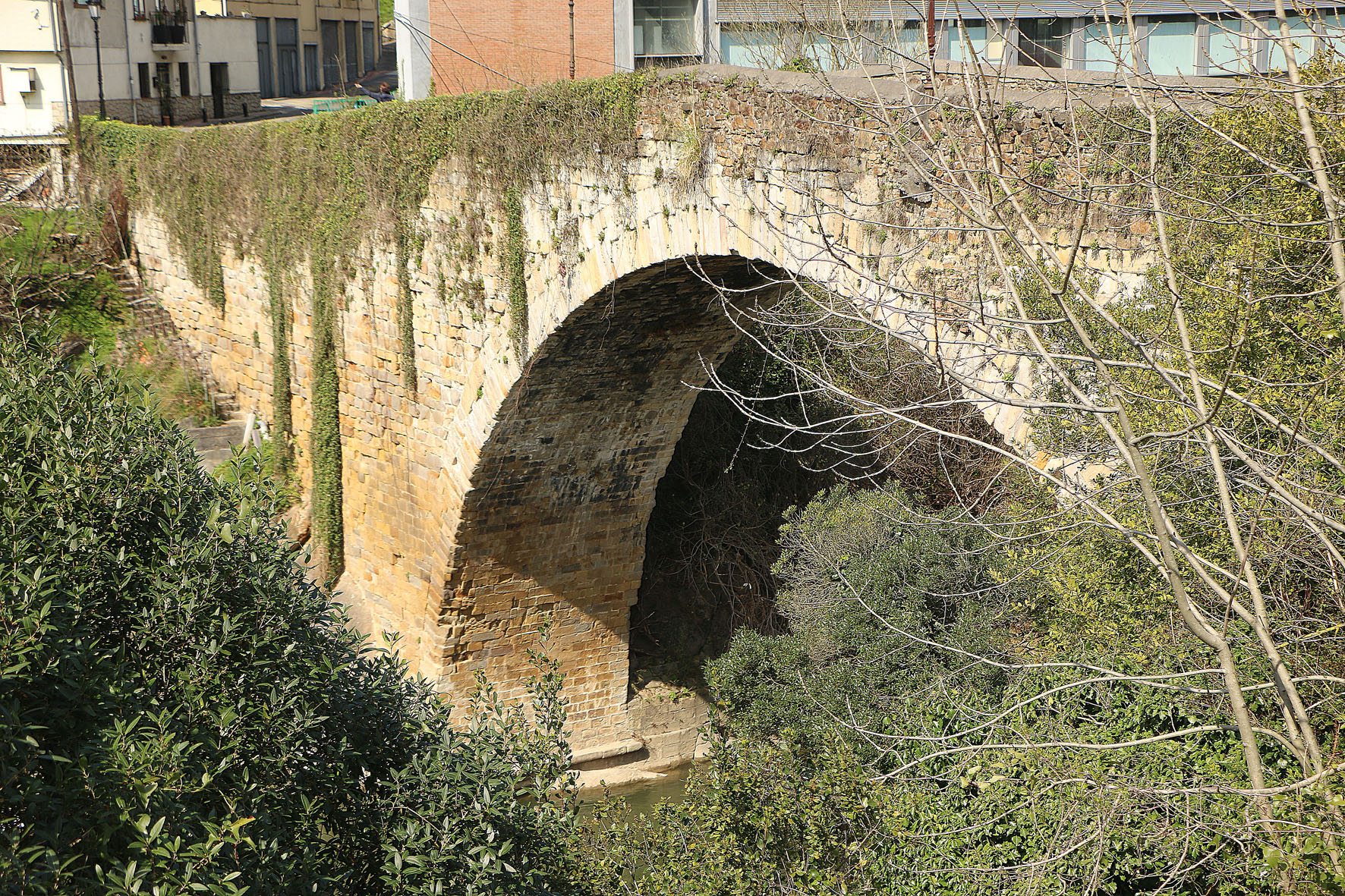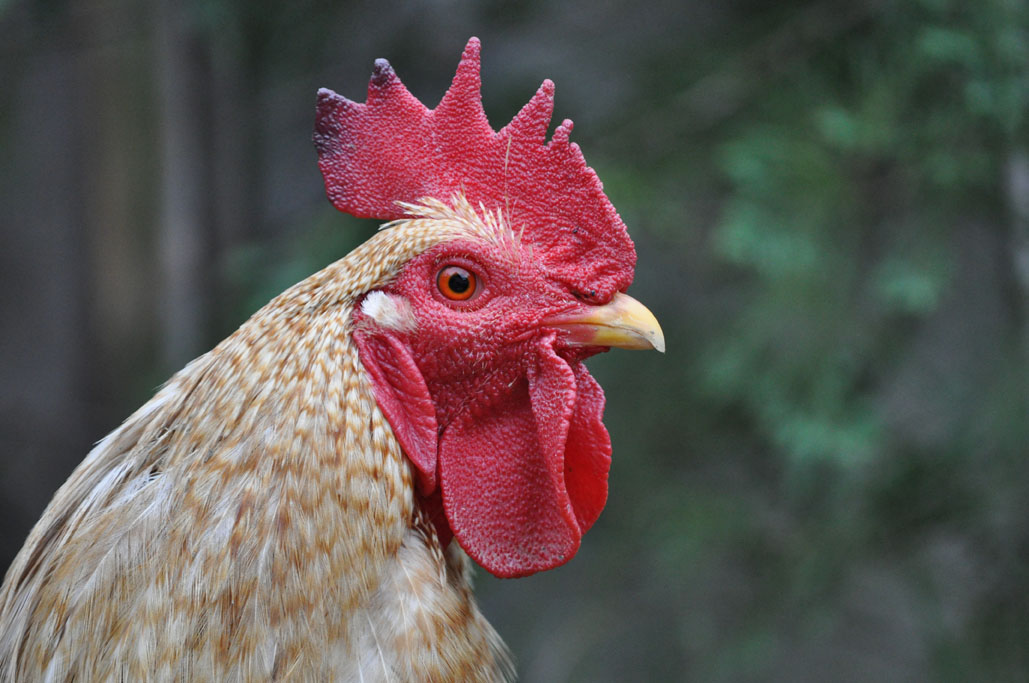
Devil’s Bridge in Castrejana (Bizkaia). José Ignacio García Muñoz.
The rooster born in March from an egg laid in March (marti-oilarra or martiko oilarra) is considered to be a magic bird in the popular tradition of Bizkaia, and unlike others, is said to crow at midnight. Various versions of the ancient legend of the “Devil’s Bridge” feature this mythological character, all sharing the same essential plot.
The legend tells of a master builder who undertook a contract to build a bridge in Castrejana, but any work completed by his men during the day fell apart the next night.
As the date of delivery approached, he feared it would simply be impossible to meet the deadline. In his anger and annoyance, and with only one day remaining, he called out:
“To the devil with it! I cannot manage to build the bridge.”
Naturally, as one would expect, the devil himself appeared to him and offered:
“I shall build your bridge tonight in return for your soul.”
And the contractor accepted the devil’s tempting offer to quickly build the bridge.
After the ringing of church bells at nightfall thousands of tiny devils arrived from hell and started work. Large stones were quarried, carved and passed from one hand to another with speed and efficiency.
In fear for his soul the bridge builder went to the priest for advice about what to do next. The priest sent him to fetch a handsome rooster born in March and come to the bridge with it before midnight, for its crow would make the little devils flee.

Farm rooster. Jairo Castillo.
So the man fetched a rooster born in March and kindly requested:
Martiko oilartxu gorria,
izan zakidaz balia;
orain balietan ez bazara,
joan da nire bizia.
(Dear red rooster born in March, / do be good to me; / should you not be good now, / my life shall be lost.)
The rooster crowed, and on hearing its crow, the little devils run away angrily without completing the bridge. And that is how the master builder saved his soul, as the legend tells.
Adapted and translated by Jaione Bilbao – Ethnography Department – Labayru Fundazioa
Reference for further information: Gorbeia inguruko etno-ipuin eta esaundak [Ethno-tales and sayings from Gorbeia and environs] by Juan Manuel Etxebarria. Bilbao, 1995.